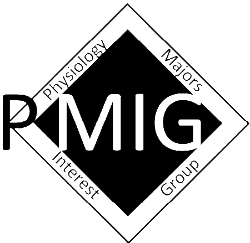First-of-its-kind manuscript collection published to strengthen, unify physiology degree programs

Under the direction of Michigan State University physiologist Erica Wehrwein, the Physiology Majors Interest Group (P-MIG) published 14 manuscripts in a special collection of papers featured in Advances in Physiology Education.
The papers in this first-of-its-kind special collection represent the culmination of recent P-MIG efforts and capture the breadth of the group’s work, including its history and purpose.
“Despite the long history and current popularity of the physiology major, there is no coordinated plan articulated for the design, administration, or assessment of degree programs in physiology at the undergraduate level,” said Wehrwein, an associate professor in the MSU Department of Physiology.
Founded in 2014 to explore the specific needs that program directors in physiology must address in their programs, P-MIG is a grass-roots consortium of physiology educators focused on creating program-level guidelines for undergraduate physiology and related programs.
“Guidelines can help educators make informed decisions about their courses, provide for a more uniform student experience among different schools, serve as a basis for assessment, and improve student achievement,” said Wehrwein in one of the collection’s articles.

Topics in the special collection include key missions to improve undergraduate degree programs by inclusion of core concepts, professional skills, and high quality advising. There is also a snapshot of the coursework in existing degree programs, student perceptions, career trends for graduates, and the rollout of a new curricular mapping database.
P-MIG’s value lies in cultivating improved communication across peer bachelor’s programs, sharing best practices among faculty members who want to stay up to date with useful resources, and collectively evaluating and strengthening program quality across the discipline. The underlying goal of all P-MIG’s work is to strengthen and unify physiology programs—and related programs—to help students succeed.
“The work of P-MIG in the special collection is the basis for future efforts to improve the education and training of physiology undergraduate students, both nationally and internationally,” Wehrwein said. “By working together, undergraduate program directors and faculty in these programs build a consensus vision for how to administer the highest quality education to our students.”
Among the 25 national and international colleagues who contributed to the collection, six authors have ties to the MSU Department of Physiology. Chris Shaltry, academic technology and curriculum specialist, and John Zubek, physiology assistant professor, were authors on key papers. Shaltry reported on a novel curricular mapping database that he designed and piloted based on the curricular guidelines for undergraduate programs written by P-MIG. Zubek played a key role in establishing a set of guidelines for professional skills development within physiology undergraduate curriculum. Valerie VanRyn, James Poteracki, Kevin Kelly, Keeler Steele, and Yvonne Ogrodzinski, former students and employees who worked on P-MIG initiatives while at MSU, contributed substantially to the collection.
Banner image: Founded in 2014 to explore the specific needs that program directors in physiology must address in their programs, P-MIG is a grass-roots consortium of physiology educators focused on creating program-level guidelines for undergraduate physiology and related programs. The underlying goal of all P-MIG’s work is to strengthen and unify physiology programs—and related programs—to help students succeed.